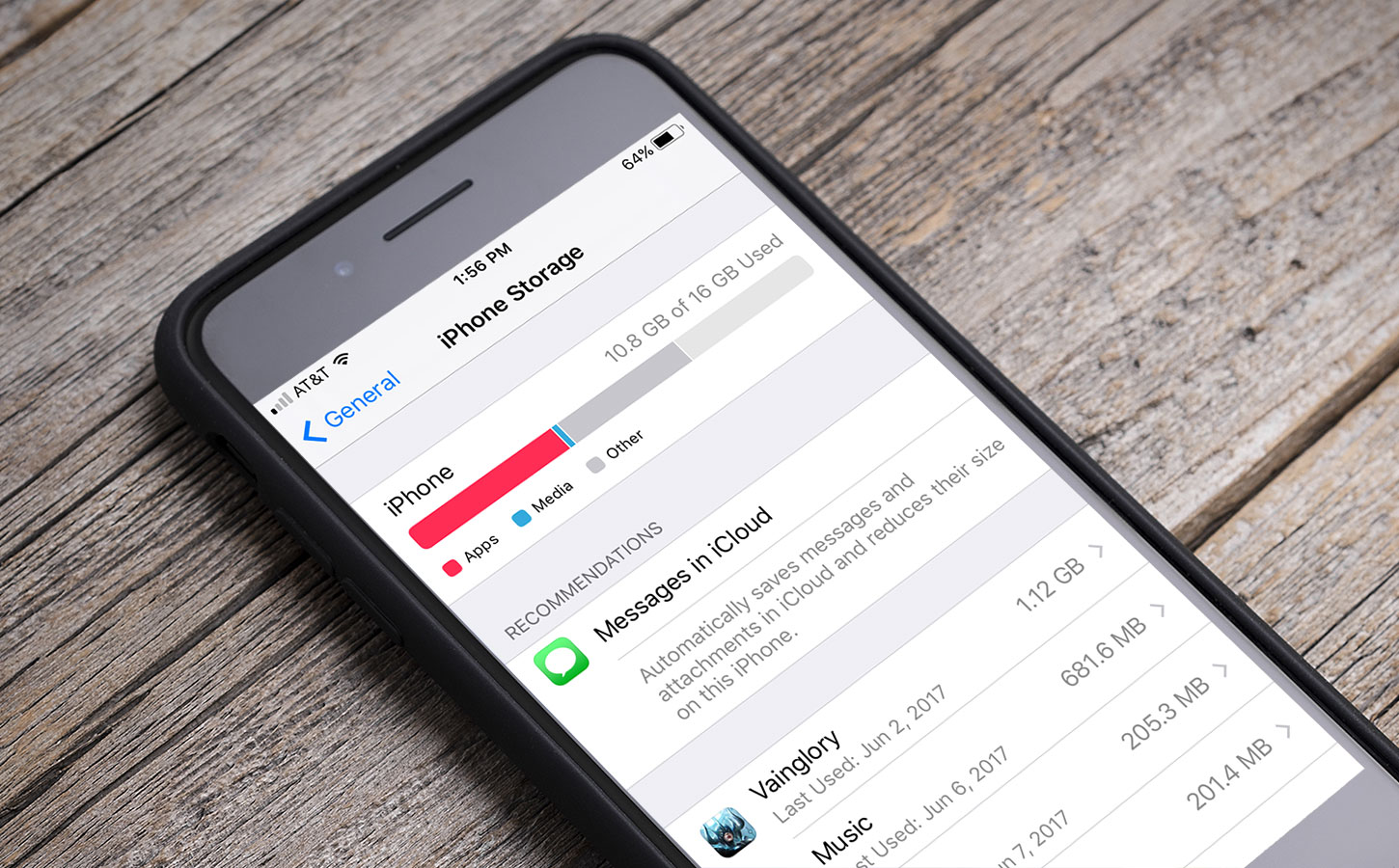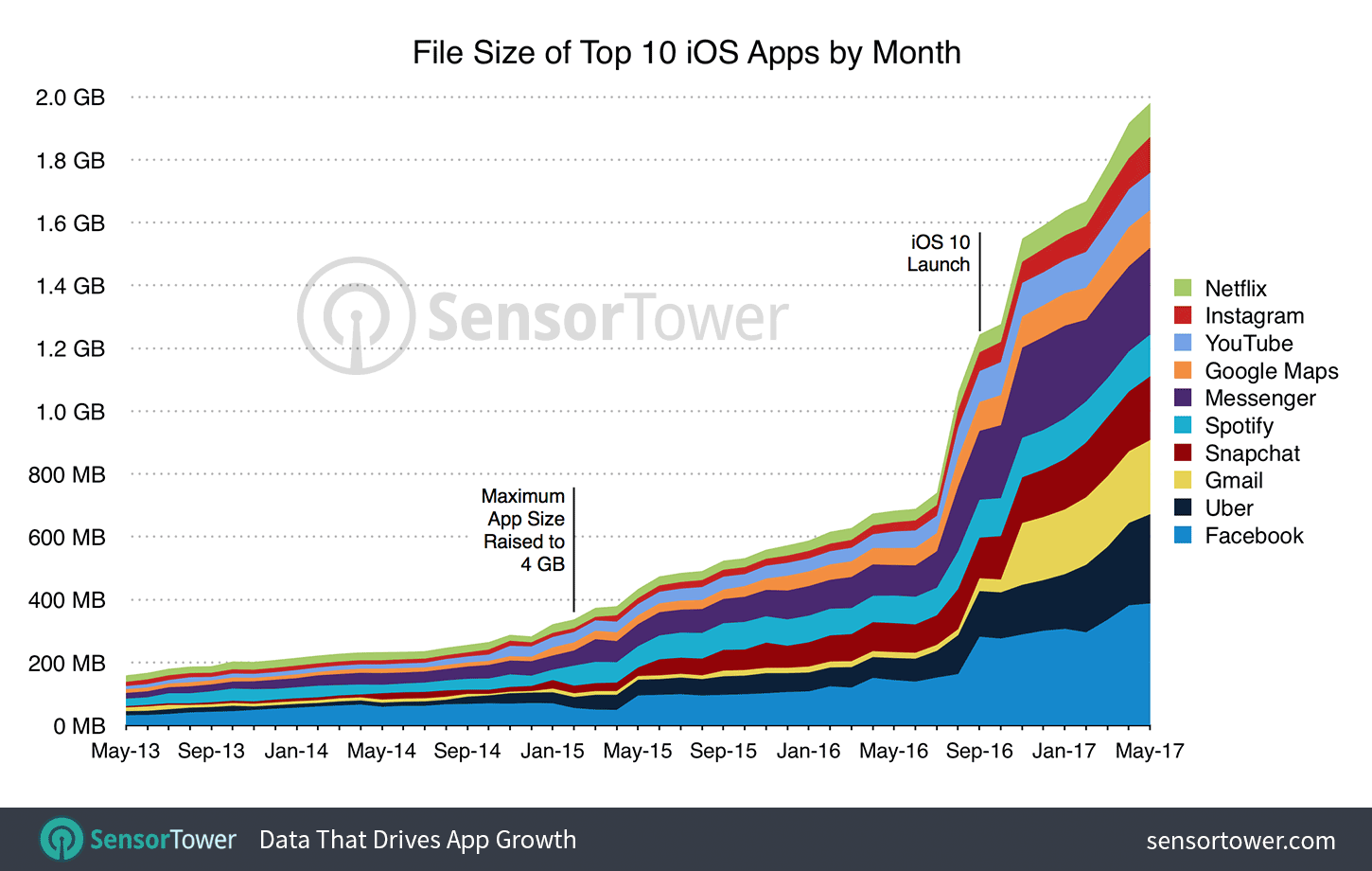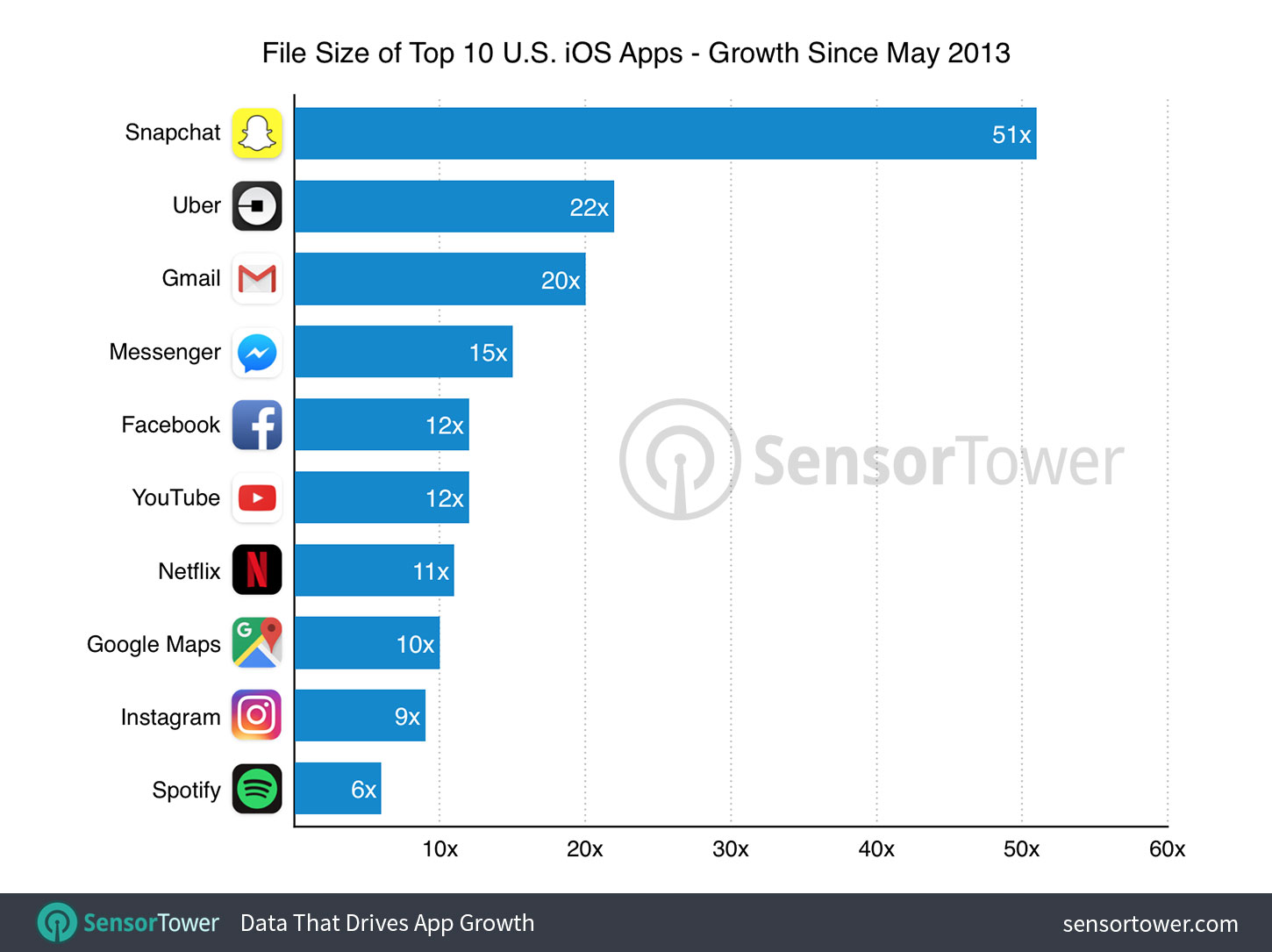2026 State of Mobile is Live!
Mobile App Insights · Randy Nelson · June 2017
The Size of iPhone’s Top Apps Has Increased by 1,000% in Four Years
According to Sensor Tower data, the storage required for the 10 most popular iOS apps has skyrocketed since 2013.

As the minimum storage capacity of iPhone continues to increase—it sits at 32 GB today on the iPhone 7, double the the iPhone 5S's 16 GB circa 2013—it's not surprising that the size of apps themselves is getting larger. In fact, Apple raised the app size cap from 2 GB to 4 GB in early 2015. What's surprising is how much faster they're increasing in size compared to device storage itself.
According to Sensor Tower's analysis of App Intelligence, the total space required by the top 10 most installed U.S. iPhone apps has grown from 164 MB in May 2013 to about 1.9 GB last month, a 12x or approximately 1,100 percent increase in just four years. In the following report, we delve deeper into which apps have grown the most.
Most Growth Has Occurred in the Past Year
As you can see in the chart below, while none of the top 10 apps—which include Facebook, Uber, Gmail, Snapchat, Spotify, Messenger, Google Maps, YouTube, Instagram, and Netflix—are larger than a few hundred megabytes individually, they all began to increase in size after Apple raised the maximum app size to 4 GB in February 2015.

Before this point, apps were limited to a maximum of 2 GB, with the core executable capped at 100 MB of that (the latter is still the case). Of course, apps can take up additional storage on a user's device; Apple's limit applies to what can be initially downloaded from the App Store. For the purposes of our analysis, we only looked at the core app size, not the total storage footprint of an app plus additional content.
Also noticeable above is a further acceleration in app size increase following the September 2016 rollout of iOS 10, but as we'll get to in the next section, there's a more specific reason for a lot of this growth among the top 10 apps in particular.
Some Apps Have Grown More Than Others

Of the top 10 most popular U.S. iPhone apps, the minimum growth we saw in app size since May 2013 was 6x for Spotify. As the chart above shows, other apps, especially Snapchat, have grown considerably more.
In fact, Snapchat is more than 50 times larger than it was four years ago, clocking in at 203 MB versus just 4 MB at the start of the period we looked at. It's not the largest app among the top 10, however. That distinction goes to Facebook, which, at 388 MB, is 12 times larger than it was in May 2013 when it occupied 32 MB. It grew by about 100 MB in one update during September of last year.
Gmail is another standout in terms of sudden app size growth, having grown from 41 MB last October to 197 MB in November (an almost 5x or 380 percent increase) after a redesign.
We see the often sudden growth in size exhibited by apps such as Facebook and Snapchat as directly tied to the intense competition between them, which necessitates a steady rollout of new and more space-intensive features. Of course, some apps have likely grown in size simply due to a reduced need (or perception of a need) for optimization.
Games Grew Too, As Expected
Unlike an email app, mobile games are expected to increase in size as both their complexity and the amount (and quality) of their audiovisual content increases over time to match the fidelity of the newest devices.

Looking at two specific examples, the ever-popular top 10 title Clash of Clans has grown from 49 MB to 116 MB over this period (a bit more than 2x) and Candy Crush Saga has grown about 4.6x from 48 MB to 223 MB. Meanwhile, the initial download for a graphically cutting-edge game, such as the recently launched Injustice 2, sits at 1 GB—more than the entire top 10 grossing list from May 2013.
Apple's Answer: Smarter Storage
Apple is clearly aware of the storage requirements being placed on modern iOS devices by developers. In fact, iOS 11 will introduce new features to help users make the most of the storage they have, including offering suggestions about infrequently used apps and the option to offload them—removing the core app while retaining all its settings and data for when they're needed again. This should help owners of storage-strapped devices and those whose downloading habits are well above average.
